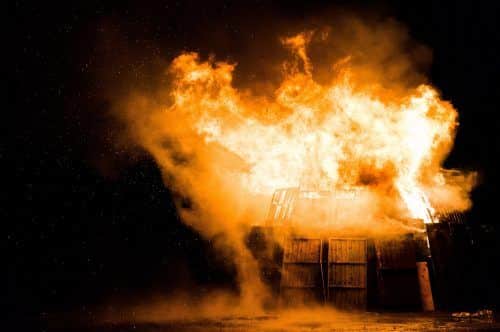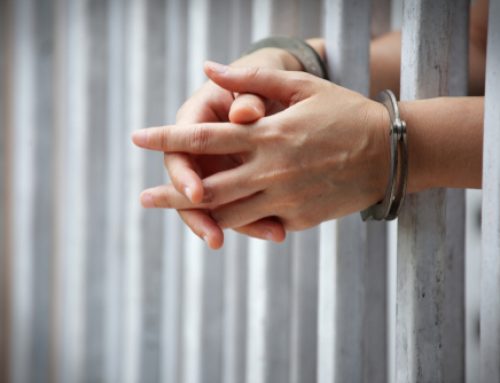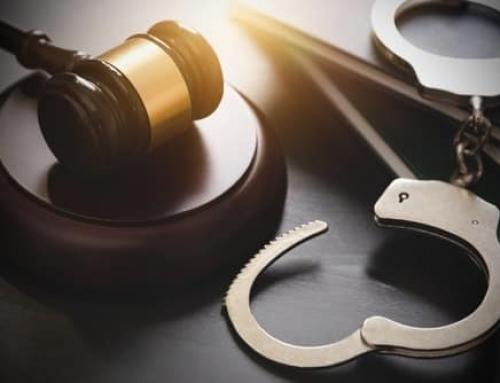By definition, arson is “the willful and malicious burning or charring of property.” While most arson involves setting fire to a building, it also includes setting fire to forest land or a boat. A property doesn’t have to belong to someone else in order for arson to be committed. If you burn down your own home in hopes of gaining insurance money, then you have committed arson. A structure also does not have to actually burn down in order for arson to have taken place. Simply starting a fire with the intent to damage or destroy a structure is enough. If an explosive started a fire, that also counts.
What an Arson Investigation Process Like in Pennsylvania?
Arson can take months or sometimes even years to fully investigate. Law enforcement uses advanced chemical analyses to find the origin of the fire. Arson is sometimes used to cover up other violent cases, such as murder. In many cases, arson is used to commit insurance fraud. Because insurance fraud is a common motive, insurance companies typically do a thorough job of investigating fires that seem suspicious.
Penalties for Arson in Pennsylvania
Penalties for arson vary from state to state. In Pennsylvania, there are several different categories of arson, some of which are first-degree felonies and others of which are second or third-degree felonies. These categories are arson endangering persons, arson endangering property, aggravated arson, reckless burning or exploding, arson of historic resource, and dangerous burning.
The penalties for arson in Pennsylvania include imprisonment and fines. When arson is a first-degree felony, the offender can serve up to 20 years in prison and may have to pay fines up to $25,000. When it is a second-degree felony, the offender can spend up to 10 years in prison and can again be fined up to $25,000. When arson is a third-degree felony, the offender can spend up to 7 years in prison and may be fined up to $15,000. If a person is convicted of aggravated arson–arson committed knowing someone may likely be harmed–the offender can be sentenced to up to 40 years in prison if someone is injured in the fire.
Insurance fraud and arson are two separate crimes. This means that if someone burns his or her own home in order to collect insurance money, he or she will be charged with both crimes. Because penalties are severe, you are going to want to take all steps possible to defend yourself against an arson accusation.
Forming A Defense Against Arson in Pennsylvania
What is needed to prove arson took place? The investigation must show that the suspect was responsible for the fire, that the fire was started intentionally with a goal to cause damage, and that the intent was malicious. There needs to be a clear motive for the defendant to have wanted to cause arson; oftentimes this motive is insurance fraud. Sometimes this can make it a bit tricky to disprove motive; most people have some sort of homeowner’s or renter’s insurance, after all.
To defend against an arson case, you will likely need to find a fire investigator who can determine the cause of the fire, a lack of motive on your part, and can help with other aspects of the case. If you can find proof that another party was responsible for the fire, that is excellent. You will also need to hire a skilled criminal defense attorney. An attorney can help you take steps to ensure that circumstantial evidence cannot be used during a hearing and help you make sure the jury is educated on the fact that it is up to the prosecution to prove you guilty–not for you (the defendant) to prove your own innocence.
One very strong defense is simply having an alibi. Also, refuting the evidence and keeping evidence circumstantial can help your case. Simply having insurance is not enough to prove someone committed arson. In certain cases, a good lawyer can throw out the motive of insurance fraud from the case altogether. Gather as much evidence to support your defense as you can. Find witnesses and establish a solid alibi. Use reliable witnesses to confirm that you were not at the scene when the fire started.
Hiring A Criminal Attorney in Philadelphia
Facing a criminal charge is a stressful and overwhelming process, and getting professional help will not only help you in the legal process, it will also give you peace of mind. Hiring an experienced criminal lawyer, such as Brian Fishman, is the best thing you can do to help your case. A criminal defense attorney will be able to help you build a strong defense, and give you sound advice on what you should do throughout the case. Brian Fishman has been practicing law for over 12 years in Philadelphia. The vast majority of his cases have been criminal. The Fishman Firm will provide you with a free consultation. Calling the firm is the first and most important step towards ensuring you receive the justice you deserve.






